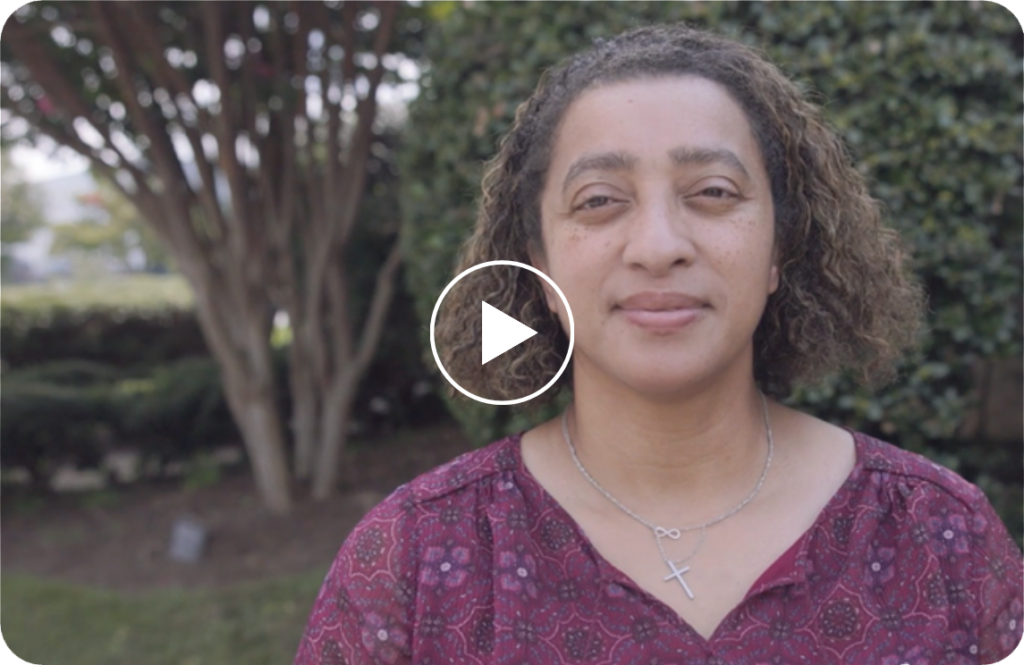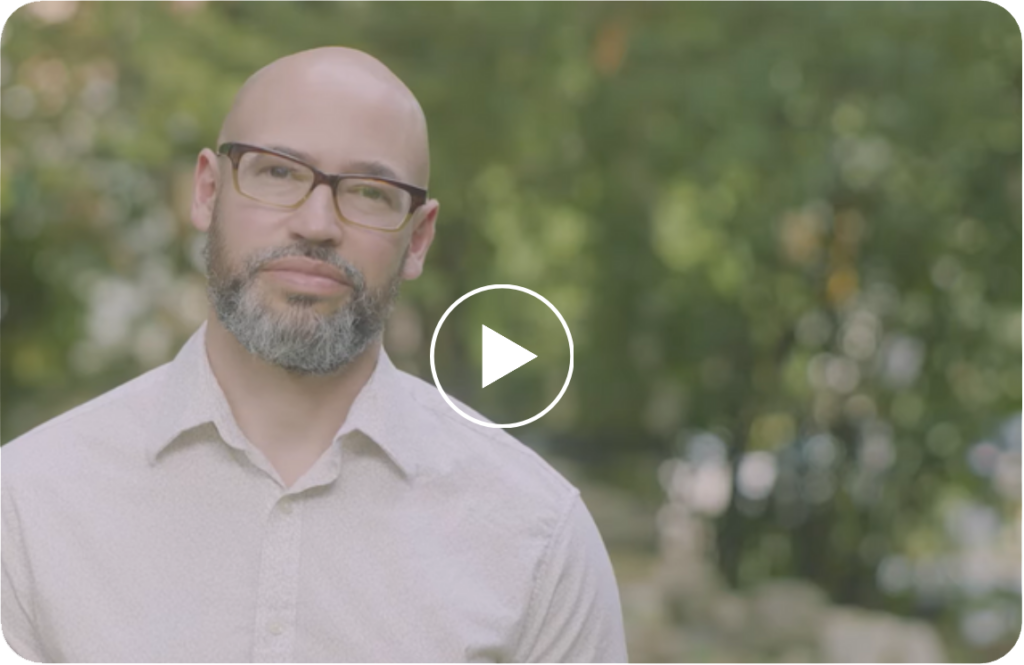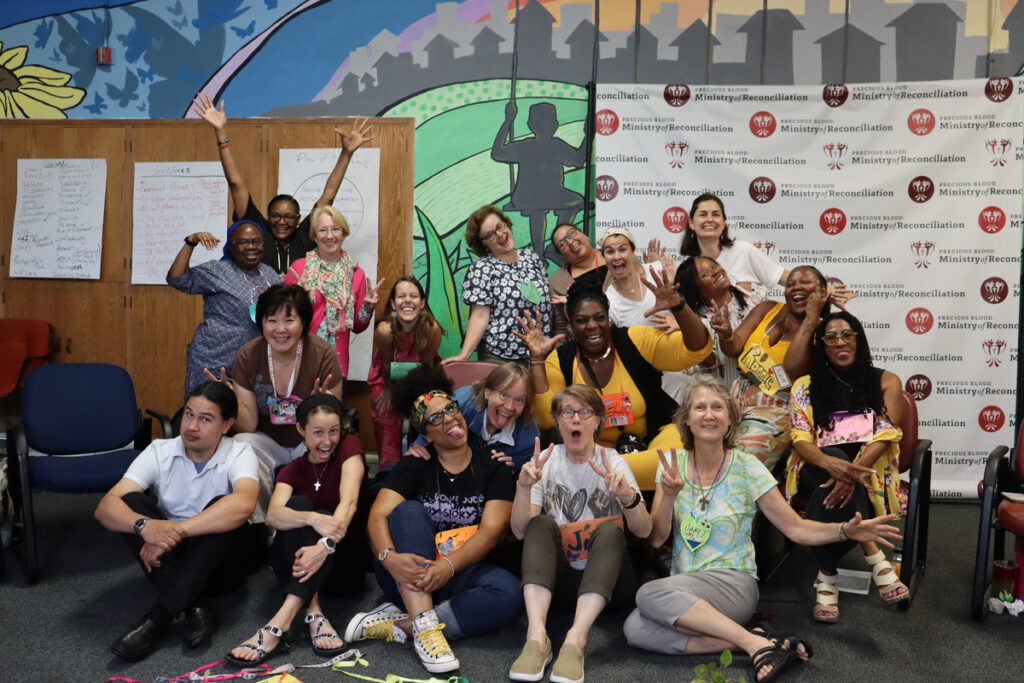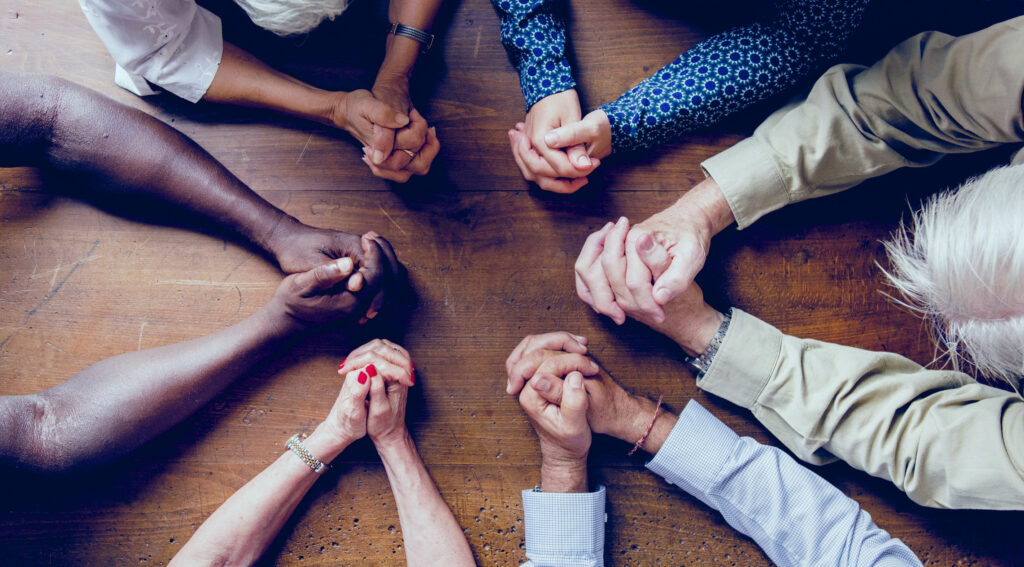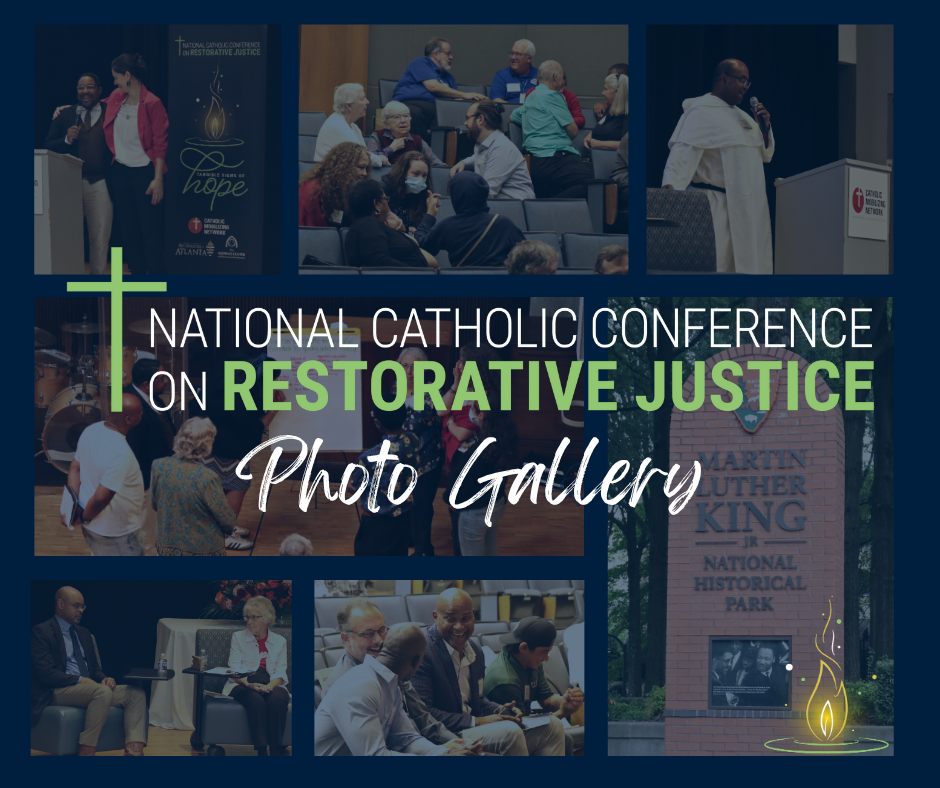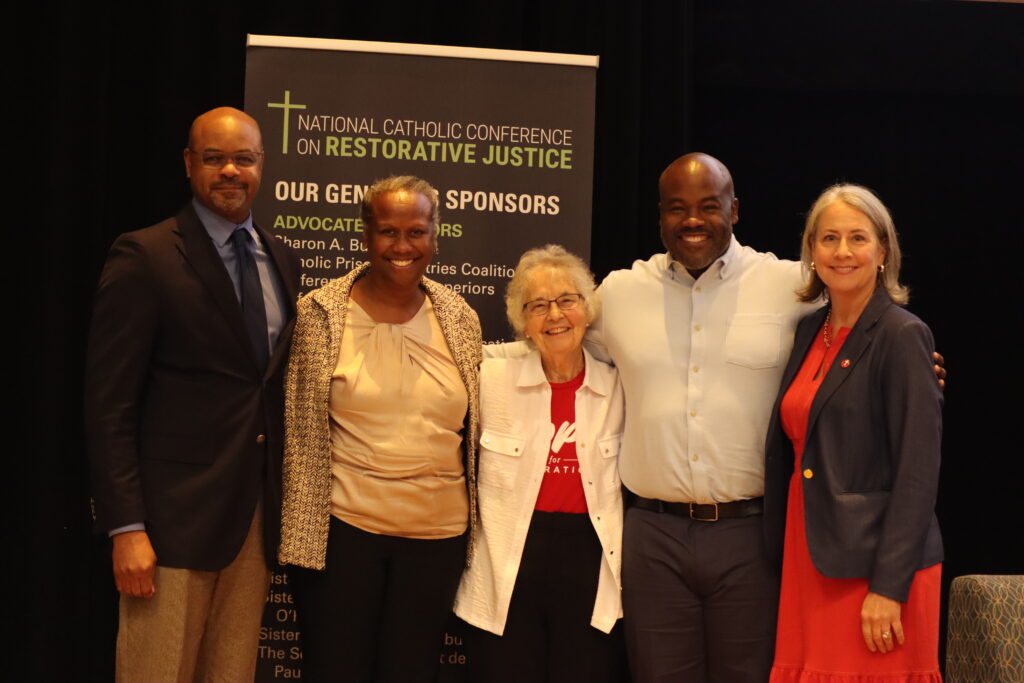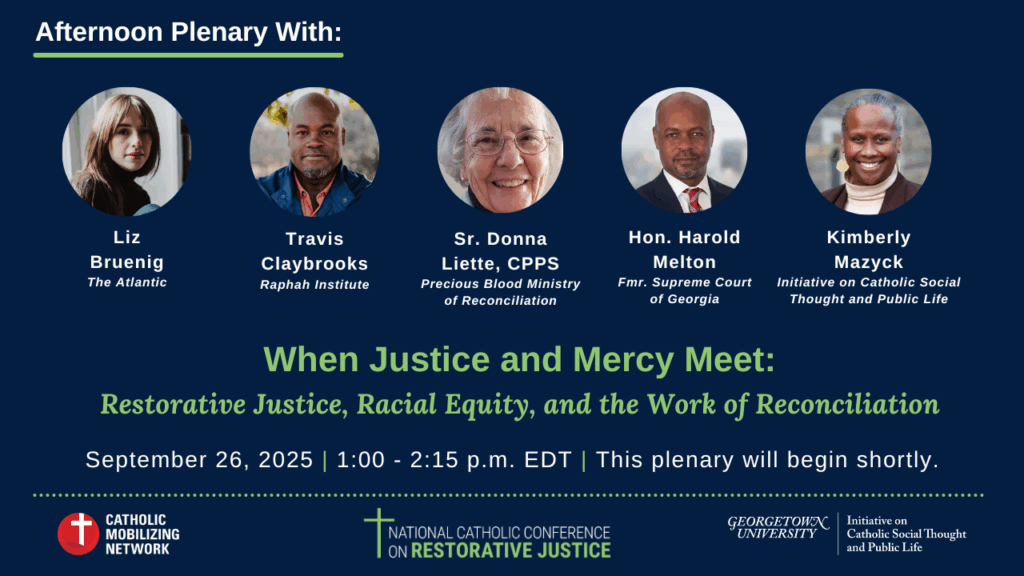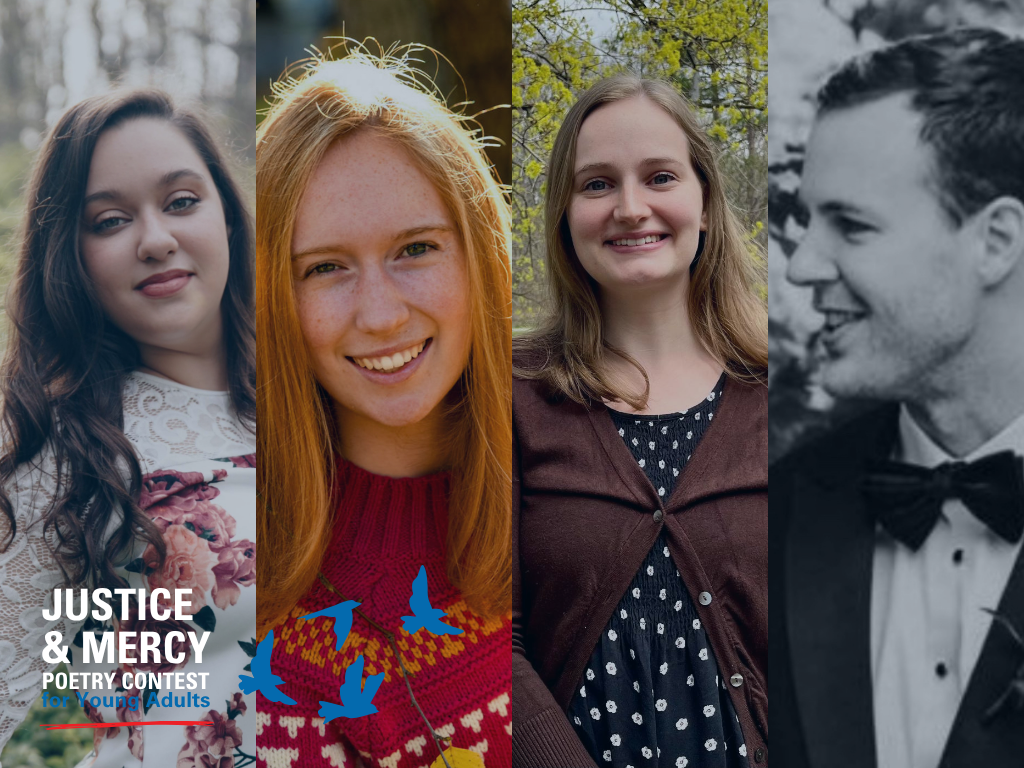Advancing Justice & Healing
Every person deserves to be treated with dignity and given the opportunity to transform hurt and suffering into healing, redemption, and wholeness.
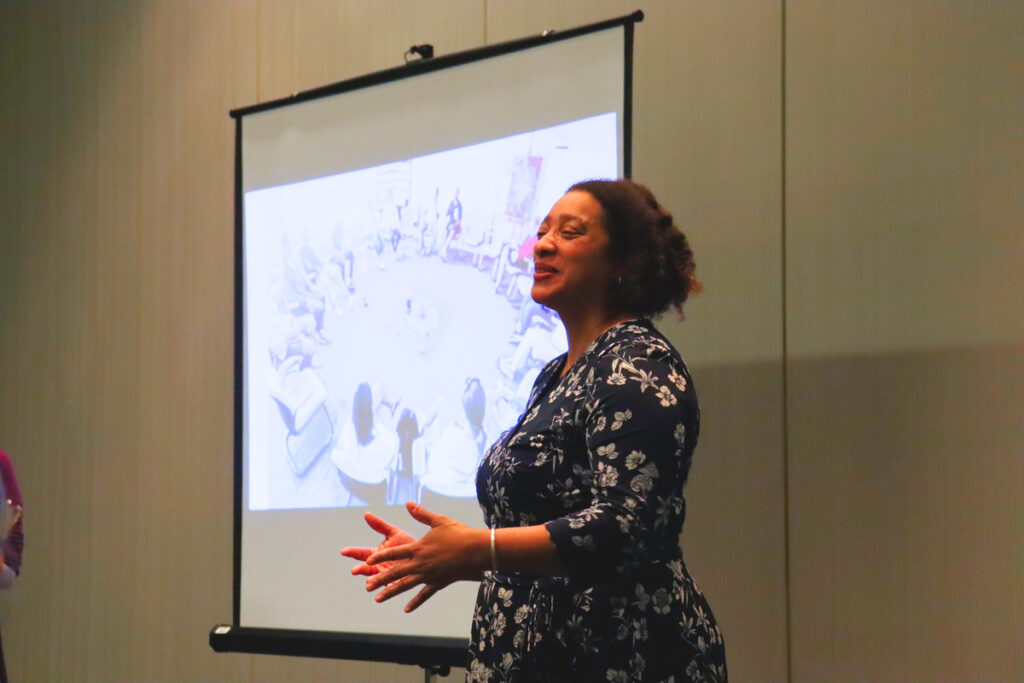
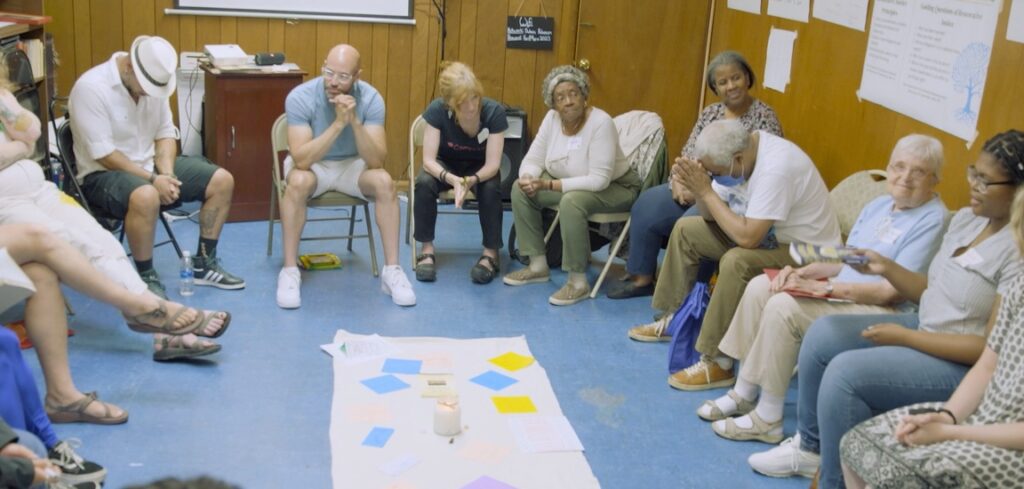
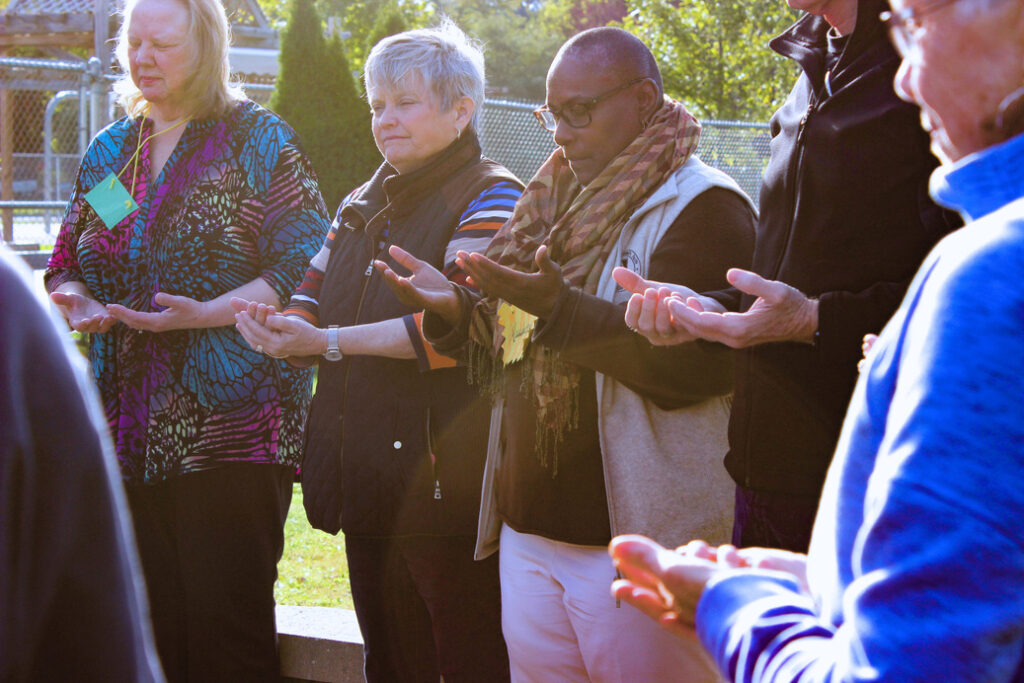
What is restorative justice?
Restorative justice is a voluntary and safe process that brings together people affected by harm.
The process allows all participants to understand the impacts of the harmful action — and what is needed to make things right. It can be a transformative and healing experience.
“There is a need for paths of peace to heal open wounds. There is also a need for peacemakers, men and women prepared to work boldly and creatively to initiate processes of healing and renewed encounter.”
– Pope Francis, Fratelli Tutti
Why choose restorative justice?
Restorative justice offers principles and practices that benefit:
A Catholic Perspective
Restorative justice aligns with Catholic social teaching by recognizing that every person has inherent dignity and the right to be part of processes and systems that impact them.
By offering ways to repair harm and rebuild damaged relationships, restorative justice can help Catholics live out their faith and follow Jesus’s reconciling way.
Become an Agent of Restoration
Join the growing movement of Catholics and people of goodwill who are discovering, embracing, and promoting restorative justice.
Restorative Justice News
Stay updated with the latest news from CMN plus the national movement to advance justice and healing.
Help CMN advance justice and healing.
Get restorative justice updates in your inbox.


